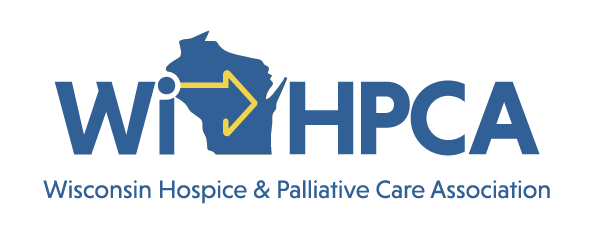By Hoven Consulting – WiHPCA’s lobbying firm
- Fiscal Year 2023-2025 State Budget Update – Department of Health Services
On June 15, the Legislature’s Joint Finance Committee (JFC) approved Fiscal Year 2023-2025 funding levels for the Department of Health Services (DHS). The approved DHS budget increased spending by $3.1 billion overall over the biennium.
Good news – JFC agreed to include $2.5 million to expand allied health professional education and training grants. It also expanded eligibility to registered nurses.
The following are highlights of the DHS budget, as approved by JFC:
Medicaid/Medical Assistance
- Nursing Home Support Services: Provide $73,200,000 in FY2023-24 and $73,200,000 in FY2024-25 to increase the support services portion of Medical Assistance program reimbursement for nursing homes. Require DHS to establish and implement a priced rate for nursing home support services based on median facility costs, plus 25 percent.
- Nursing Home Ventilator Dependent Rate: Provide $5,000,000 in FY2023-24 and $5,000,000 in FY2024-25 to increase the all-encompassing ventilator-dependent resident reimbursement rate for nursing home care. Require DHS to increase the reimbursement rate under the Medical Assistance program for an authorized facility treating a resident of the facility who has received prior authorization for ventilator-dependent care reimbursed under the all-encompassing ventilator dependent resident reimbursement rate by $200 per patient day.
- DHS and Managed Care Organization Reporting Requirements: Require DHS to include information regarding (a) executive leadership salaries and (b) amounts retrieved by the state under the contractual risk corridors, in the publicly available financial summaries for Family Care, Family Care Partnership, and PACE (Program of All-Inclusive Care for the Elderly) managed care organization. Require DHS and Family Care, Family Care Partnership, and PACE managed care organization (MCO) to track and annually report to JFC total authorized and total provided care plan hours by service category and MCO.
Elder and Disability Services
- Aging and Disability Resource Centers (ADRCs): Provide $2,513,700 in FY2023-24 and $5,027,400 in FY2024-25 in funding increases.
- Complex Patient Pilot Program: Provide $5,000,000 in FY2023-24 on a one-time basis to help facilitate the transfer of complex patients from acute care settings, such as hospitals, to post-acute care facilities, such as nursing homes. This pilot program appears to be focused on the relationship between hospitals and nursing home facilities.
Public Health
- Allied Health Professional Training: Provide $2,500,000 annually to expand allied health professional education and training grants. Expand eligibility for the program to include registered nurses.
Behavioral Health
- Telemedicine Crisis Response Pilot Program: Provide $2,000,000 in FY2023-24 for a telemedicine crisis response pilot program.
The DHS budget was adopted by the committee on a party line vote of 11-4. While these items will be included in the Legislature's budget proposal, they will only be enacted if the budget bill is passed by both the Assembly and Senate and the bill is signed by Governor Evers.
- Fiscal Year 2023-2025 State Budget Update – Department of Safety and Professional Services (Occupational Credentialing)
On June 8, the Legislature’s Joint Finance Committee (JFC) held a committee meeting and approved the Fiscal Year 2023-2025 budget for the state Department of Safety and Professional Services (DSPS). This agency is responsible for occupational credential processing, the state’s electronic Prescription Drug Monitoring Program, as well as other matters. In recent years, DSPS has struggled with processing a backlog of applications for new and renewed occupational credentials.
During this meeting, committee Republicans proposed funding the following:
- $3.57 million for occupational credentialing software and related maintenance.
- 7 license processing contract workers (on a four-year employment contract).
- 6 license processing-focused customer service call center contract workers (on a two-year employment contract).
- $1.1 million for software improvements, electronic health records integration, and licensing costs for the state’s electronic Prescription Drug Monitoring Program.
The committee approved this funding package and did not approve an alternate funding package advanced by committee Democrats.
During this committee meeting, committee Democrats criticized GOP JFC members for not including funding for more credential processing staff, bearing in mind the ongoing credential processing backlog at DSPS. JFC Republicans responded by noting that the agency will improve its output with fewer employees due to the increased use of technology.
The DSPS budget was also adopted by the committee on a party line vote of 11-4. While these items will be included in the Legislature's budget proposal, they will only be enacted if the budget bill is passed by both the Assembly and Senate and the bill is signed by Governor Evers.
- Changes to Local Health Officer Authority
On June 14, both the Assembly and Senate approved legislation that increases the amount of tax revenue the state government shares with counties and municipalities. This legislation reflected a compromise between Assembly Republicans, Senate Republicans and Governor Tony Evers. This legislation was sent to the Governor on June 15, and he signed it into law on June 20. This new law also limits the authority of local health officers to close businesses due to the spread of communicable diseases. Prior to the shared revenue legislation, there were no such limitations on local health officers in state law. In particular, the new law makes the following changes:
- A local health officer may close a business “to control an outbreak or epidemic of communicable disease” for up to 30 days.
- After the initial 30-day closure mandated by a local health officer, the governing body (e.g., county board, common council) in that jurisdiction may vote to approve one 30-day extension. The local governing body will only need to approve the second 30-day closure by a simple majority vote – no supermajority vote will be required.
- The following language was also included: “A mandate to close more than one business as provided under this subsection may not distinguish between essential and nonessential businesses.”
